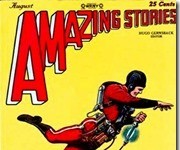 A constant point of discussion and contention on ebook forums is publisher pricing. The discussion almost always devolves into a firm statement that publishers contribute little to the value of an author’s work and that the wave of the future is for authors to do everything that the publisher does themselves.
A constant point of discussion and contention on ebook forums is publisher pricing. The discussion almost always devolves into a firm statement that publishers contribute little to the value of an author’s work and that the wave of the future is for authors to do everything that the publisher does themselves.
I don’t know if that is the wave of the future, but I do know that there is a definite misperception about what goes into the making of a successful book.
The argument against publishers goes along many threads, all fueled by objections to publisher release delays of an ebook, the ebook’s quality, and the price of the ebook, among others. (I offered a suggestion addressing the quality issue in an earlier post: A Modest Proposal II: Book Warranty.)
The do-away-with-publishers solution rests on the assumptions that authors can establish their own websites to sell their books, are willing to sell those ebooks at a lower price, and will provide the good book quality readers want, and that readers will find them, making both the reader and the author winners. Supporters of this solution cite already well-known authors who are doing this, but fail to indicate how currently unknown authors would become known. Finding a good book to read is the crux of the problem.
Publishers, for better or worse, serve at least as initial gatekeepers, helping separate some of the wheat manuscripts from most of the chaff manuscripts. Publishers have an incentive for doing so: the need to make a return on investment. Contrast this with an author. Yes, authors hope to make money from their endeavors, or at least not embarrass themselves, but it is the rare author who can objectively look at his or her 2-year-long writing effort and proclaim it garbage not worth publishing. Besides, what does the author lose by putting it up on the Internet for 99 cents? Even if the book is good, how does the author go about selling 20,000 copies? Can the author afford to spend money to market the book? Will an author hesitate, thinking about what happens if he or she does invest his or her life savings but only sells 250 copies at 99 cents?
If a publisher thinks an author’s writing has potential, the publisher invests in the manuscript and the author, maybe not hundreds of thousands of dollars, but certainly thousands of dollars.
This effort and a publisher’s imprimatur is not equatable with great writing or storytelling. Rather, it is equatable with better writing and storytelling. And that is just what publishers do — gamble their money on the commercial viability of an author’s writing.
Publishers gamble that the time spent reviewing the manuscript initially and the money spent on editing (Editor, Editor, Everywhere an Editor, an earlier post discusses editing), typesetting, design, marketing, and distribution will result in a profit for both the author and the publisher. (Disclosure: I am an editor and owner of Freelance Editorial Services, which provides editorial and production services to publishers and authors.)
What about the unknown author who goes directly to the reader? Granted that the self-publishing author’s job has gotten easier and cheaper with print on demand and the Internet, but easier and cheaper isn’t the same as manageable or successful, especially if the author wants more than to be able to say, “I am a published author.” Traditional publishers spend thousands of dollars on editorial and production related to a manuscript and on marketing. How many authors will reach into their own pocket to spend money that might not be recouped?
Publishers are selective. I agree that they do not always make a wise decision, but their screening makes my job as consumer infinitely easier. The Wall Street Journal recently reported on Authonomy.com, a slushpile website established by HarperCollins in 2008 where authors can upload their manuscripts and readers read and rate the manuscripts. HarperCollins editors then read the top 5 rated manuscripts each month. Since its start, about 10,000 manuscripts have been uploaded of which HarperCollins bought 4 (a rate of 0.0004%); everyone wants to be a great writer but not everyone is a great writer. I look at it as having saved me from at least 9,000 buying mistakes as a consumer.
Publishers play a very important role as gatekeeper for most consumers. The notion that publishers should simply go away and authors should sell direct to consumer through their website is a great idea that isn’t viable, except, perhaps, for the already well-known author (who, it is worth noting, became well-known with the help of a publisher).
If you think a book you bought was bad and should not have been published, think about those manuscripts that didn’t pass the gatekeeper. Publishers save readers from the having to deal with the worst writing, not from dealing with bad writing.
Editor’s Note: Rich Adin is an editor and owner of Freelance Editorial Services, a provider of editorial and production services to publishers and authors. This is reprinted, with permission, from his An American Editor blog. PB


































Since I know virtually nothing about the actual mechanics of the publisher/author business relationship I am wondering if one of your readers can illuminate something for me.
My perception is that a publisher takes on some risk in the costs of editing, promotion, advertising and author remuneration. Regarding this last item specifically, won’t an author picked up by a publishing house keep her advance if the book is a dud commercially?
If so, it seems THAT is the value added. The gamble, the willingness to absorb the risk. Am I all wet on this?
That’s one part. Another part is their expertise in selecting books. Yet another is their skill in producing the printed and bound book in a final form. (Much of the mechanics are done by hirelings, but let’s assume the hirelings execute the publisher’s wishes well.) A third part is their network of connections for marketing, sales (to distributors), and publicity. All of those are value added beyond the author.
Now, advances (risk), selection (editorial), and marketing (etc.) are still needed for ebooks, with not much change. The production process needs a different skill set for ebooks. Here’s where some publishers have hurt themselves in many cases, doing poorly in bytes what they do well in paper. (I view DRM as coming partially under this heading.) The distribution channel is also a bit different, with no large inventory cost or returns.
Their other failing is not being able to understand (apparently) that their business model has to change for ebooks. The mass market paperback book makes a modest profit when done correctly. Trade paperbacks and hardbacks make a much higher profit. There is no ebook equivalent to a trade paperback or a hardback. Some publisher can’t seem to cope with this. (I think this is the other part of their love of DRM.)
My guess is that the above article’s faux-idyllic “author as Jeffersonian small farmer/backbone of the republic” critique is correct. Some publishers will cope quickly and thrive, some will not and shrink, and some especially dim ones will fail.
Regards,
Jack Tingle
Patrick said, “My perception is that a publisher takes on some risk in the costs of editing, promotion, advertising and author remuneration. Regarding this last item specifically, won’t an author picked up by a publishing house keep her advance if the book is a dud commercially?”
The advance is the author’s to keep.
Very few epublishers offer an advance, though.
Excellent article. I believe that publishers add value, otherwise I would have chosen a different business. I truly believe that the books I publish are much better than the books I receive for two reasons:
1. I reject the books I believe are inferior, meaning that the average quality of what I publish is higher than the average of what I receive
2. Each book I do accept for publishing is put through a stringent editorial process which, I believe, results in a significantly improved final product.
I’ve read books by famous authors who have become too important (self-important?) to put up with the editorial guidance their publishers have given them. In many cases, it’s obvious which books the publishers contributed to–those are the good ones. As Rich points out, it’s hard for an author to look at his/her precious words and say ‘boy, does this need to be cut.’ Our books are our children and it’s hard to call them ugly.
Rob Preece
Publisher, BooksForABuck.com